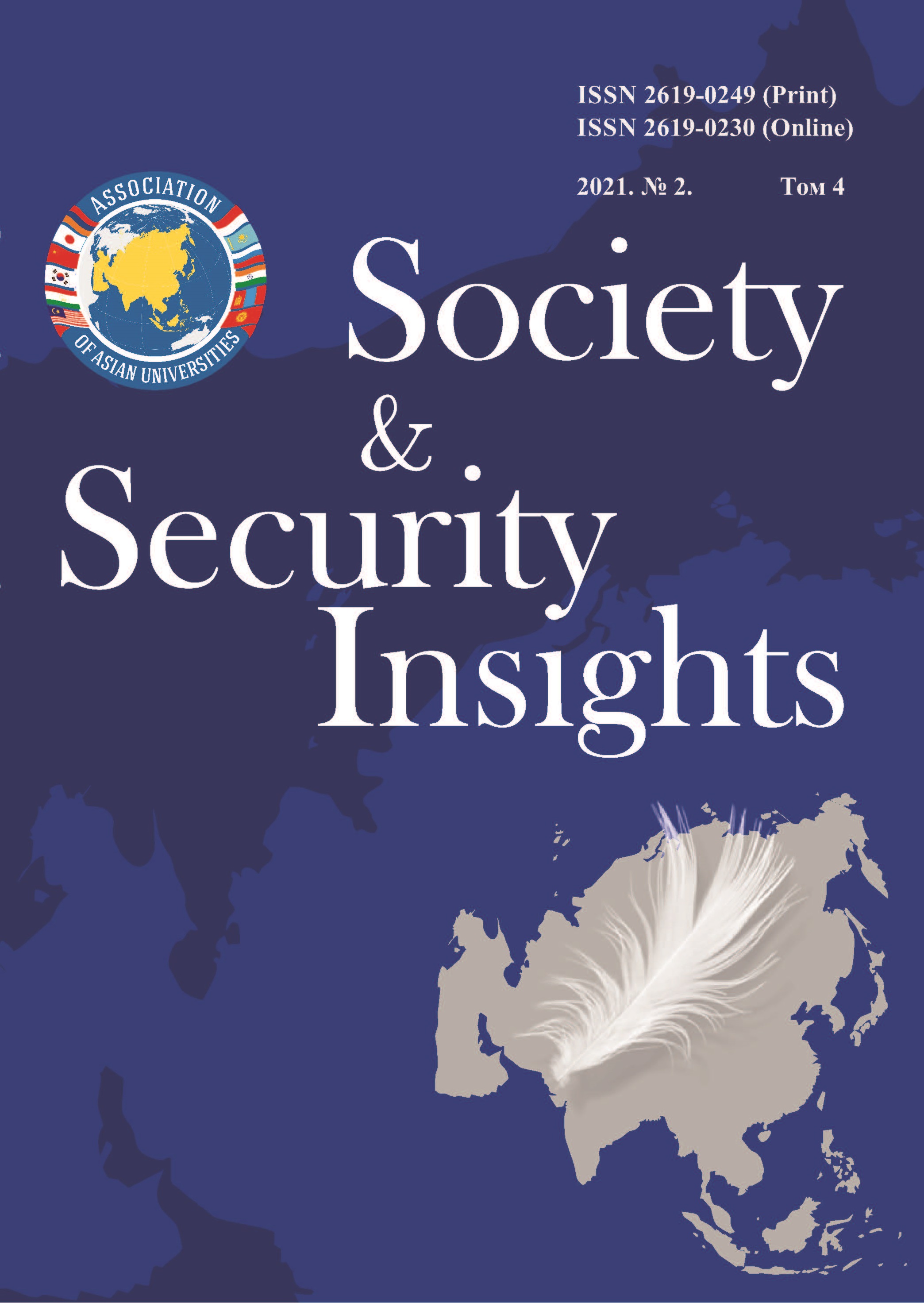SOCIAL TRUST AS A FACTOR OF PERCEPTION OF CORRUPTION(AS RESULTS OF A SOCIOLOGICAL SURVEY IN THE ALTAI KRAI)
Main Article Content
Abstract
The article presents the data of a sociological study conducted among the population of the Altai Territory (n = 1200). The purpose of this work is to determine the relationship between the population's perception of corruption and the level of social trust. Within the framework of this article, the characteristics of the level of generalized, interpersonal, particular and institutional trust were given. Perceptions of corruption were examined at the social, group and individual levels. An analysis was also made of the degree to which the population feels that they are protected from corruption. The analysis revealed statistically significant differences in the perception of corruption depending on the socio-demographic characteristics of the population (gender, income, education, social status). As a result of the classification carried out using the decision tree method, it was revealed what role generalized, interpersonal, particular and institutional trust plays in conjunction with the socio-demographic characteristics of the population and the feeling of their protection from corruption in the structure of positive / negative perception of corruption by the population in the public, group and individual level.
Downloads
Metrics
Article Details

This work is licensed under a Creative Commons Attribution 4.0 International License.
Authors retain the copyright of their manuscripts, and all Open Access articles are distributed under the terms of the Creative Commons Attribution License, which permits unrestricted use, distribution, and reproduction in any medium, provided that the original work is properly cited.
References
Глушко И.В. Социальное доверие в контексте межличностных отношений. Историческая и социально-образовательная мысль, 2014, No 2, 213–216.
Селигмен А. Проблема доверия. М.: Идея-Пресс, 2002.
Татарко А.Н. Межличностное доверие как фактор социально- экономического развития. Социальная психология и общество, 2014, No 3, 28–41.
Татарко А.Н., Миронова А.А. Ценности и доверие как факторы отношения к коррупции. Психология в экономике и управлении, 2015, No 2 (7), 96–110.
Шедий М.В. Коррупция как социальное явление: социологический анализ: автореф. дис. ... д-ра соц. наук. М., 2014.
Adelopo I. Rufai I. Trust Deficit and Anti-corruption Initiatives. Journal of Business Ethics, 2020, 163 (2), 429–449.
Uslaner E.M. Trust, democracy and governance: Can government policies influence generalized trust? In: Generating social capital: Civil society and institutions in comparative perspective. New York: Palgrave Macmillan, 2003. Pp. 171–190.
References
Glushko, V.V. (2013). Social’nye praktiki kak prostranstvo social’nogo doveriya: problemy, paradoksy i antinomii [Social practices as a space of social trust: problems, paradoxes and antinomies]. Filosofiya prava [Philosophy of Law], 5, 73–76.
Glushko, V.V. (2014). Social’noe doverie v kontekste mezhlichnostnyh otnoshenij [Social trust in the context of interpersonal relationships]. Istoricheskaya i social’no-obrazovatel’naya mysl’ [Historical and social educational idea], no 2, 213–216.
Seligmen, A. (2002). Problema doveriya [The problem of trust]. Moscow: Ideya-Press.
Tatarko, A.N. (2014). Mezhlichnostnoe doverie kak factor social’no-ekonomicheskogo razvitiya [Interpersonal trust as a factor of socio-economic development]. Social’naya psihologiya i obshchestvo [Social psychology and society], no 3, 28–41.
Tatarko, A.N., Mironova, A.A. (2015). Cennosti i doverie kak factory otnosheniya k korrupcii. [Values and trust as factors in attitudes towards corruption]. Psihologiya v ekonomike i upravlenii [Psychology in Economics and Management], 2 (7), 96–110.
Shedij, M.V. (2014). Korrupciya kak social’noe yavlenie: sociologicheskij analiz [Corruption as a Social Phenomenon: Sociological Analysis] (Doctoral Thesis). Moscow.
Adelopo, I. Rufai, I. (2020). Trust Deficit and Anti— corruption Initiatives. Journal of Business Ethics, 163 (2), 429–449.
Uslaner, E.M. (2003). Trust, democracy and governance: Can government policies influence generalized trust? In Generating social capital: Civil society and institutions in comparative perspective (pp. 171–190). New York: Palgrave Macmillan.


 https://orcid.org/0000-0001-6003-1691
https://orcid.org/0000-0001-6003-1691